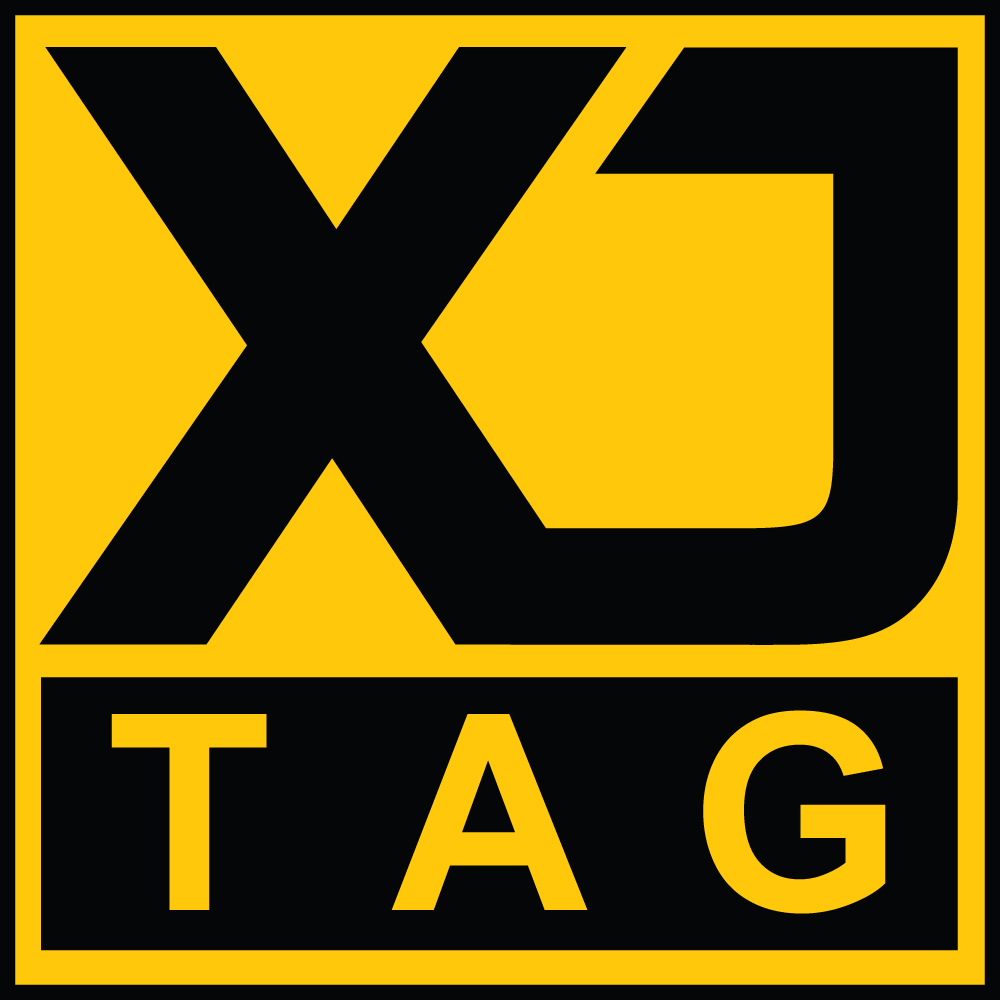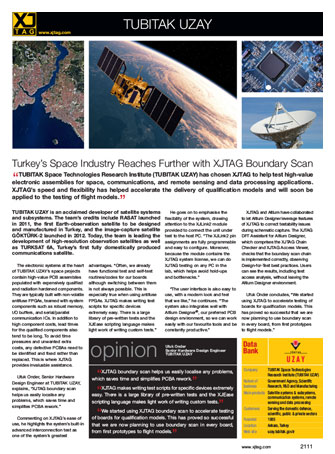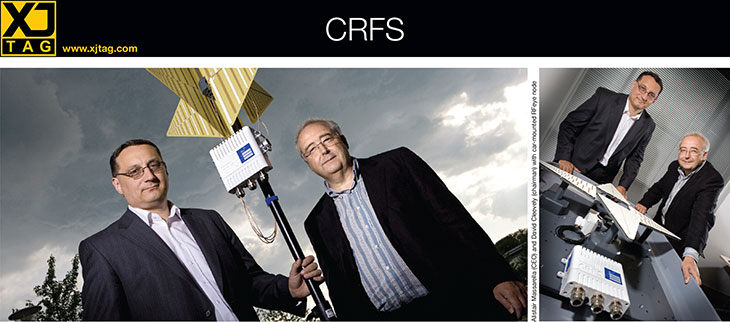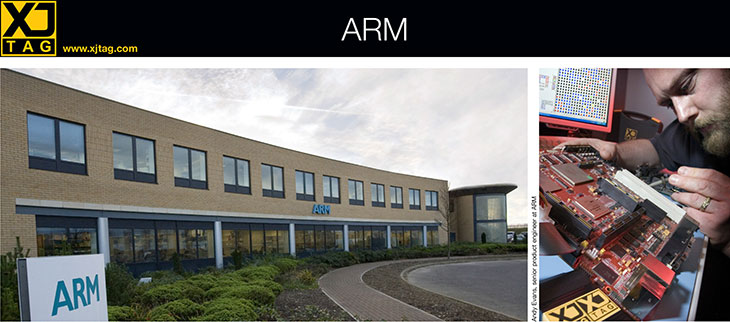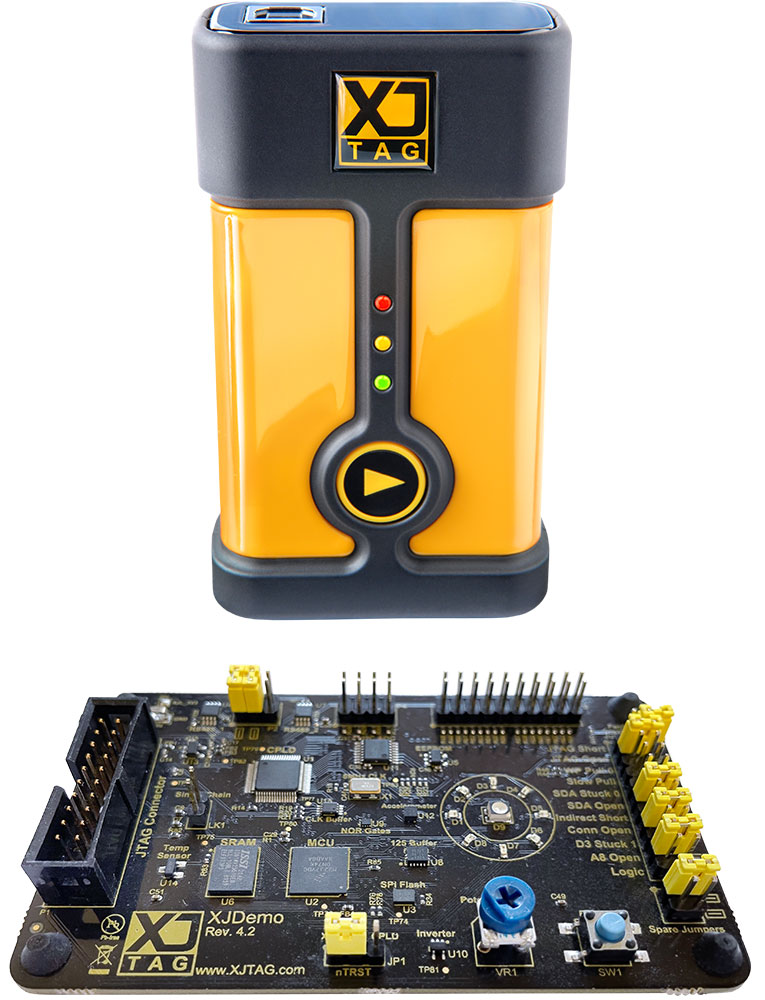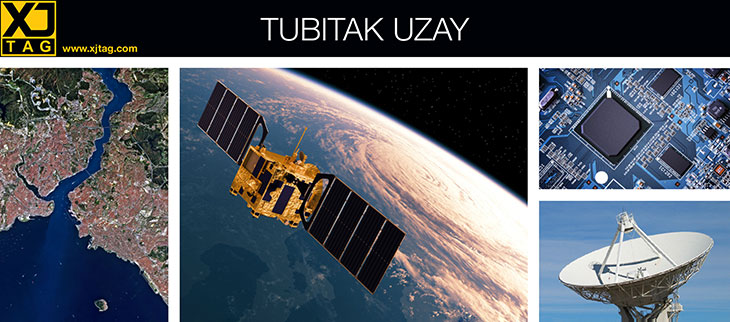
Turkey’s Space Industry Reaches Further with XJTAG Boundary Scan
TUBITAK Space Technologies Research Institute (TUBITAK UZAY) has chosen XJTAG to help test high-value electronic assemblies for space, communications, and remote sensing and data processing applications. XJTAG’s speed and flexibility has helped accelerate the delivery of qualification models and will soon be applied to the testing of flight models.
TUBITAK UZAY is an acclaimed developer of satellite systems and subsystems. The team’s credits include RASAT launched in 2011, the first Earth-observation satellite to be designed and manufactured in Turkey, and the image-capture satellite GÖKTÜRK-2 launched in 2012. Today, the team is leading the development of high-resolution observation satellites as well as TURKSAT 6A, Turkey’s first fully domestically produced communications satellite.
The electronic systems at the heart of TUBITAK UZAY’s space projects contain high-value PCB assemblies populated with expensively qualified and radiation hardened components. They are typically built with non-volatile antifuse FPGAs, teamed with system components such as robust memory, I/O buffers, and serial/parallel communication ICs. In addition to high component costs, lead times for the qualified components also tend to be long. To avoid time pressures and unwanted extra costs, any defective PCBAs need to be identified and fixed rather than replaced. This is where XJTAG provides invaluable assistance.
Ufuk Onder, Senior Hardware Design Engineer at TUBITAK UZAY, explains, “XJTAG boundary scan helps us easily localise any problems, which saves time and simplifies PCBA rework.”
Commenting on XJTAG’s ease of use, he highlights the system’s built-in advanced interconnection test as one of the system’s greatest advantages. “Often, we already have functional test and self-test routines/codes for our boards although switching between them is not always possible. This is especially true when using antifuse FPGAs. XJTAG makes writing test scripts for specific devices extremely easy. There is a large library of pre-written tests and the XJEase scripting language makes light work of writing custom tests.”
He goes on to emphasise the flexibility of the system, drawing attention to the XJLink2 module provided to connect the unit under test to the host PC. “The XJLink2 pin assignments are fully programmable and easy to configure. Moreover, because the module contains the XJTAG system license, we can do XJTAG testing on any PC in the lab, which helps avoid hold-ups and bottlenecks.”
“The user interface is also easy to use, with a modern look and feel that we like,” he continues. “The system also integrates well with Altium Designer®, our preferred PCB design environment, so we can work easily with our favourite tools and be constantly productive.”
XJTAG and Altium have collaborated to let Altium Designer leverage features of XJTAG to correct testability issues during schematic capture. The XJTAG DFT Assistant for Altium Designer, which comprises the XJTAG Chain Checker and XJTAG Access Viewer, checks that the boundary scan chain is implemented correctly, observing Design-for-Test best practices. Users can see the results, including test access analysis, without leaving the Altium Designer environment.
Ufuk Onder concludes, “We started using XJTAG to accelerate testing of boards for qualification models. This has proved so successful that we are now planning to use boundary scan in every board, from first prototypes to flight models.”

XJTAG boundary scan helps us easily localise any problems, which saves time and simplifies PCBA rework.”
XJTAG makes writing test scripts for specific devices extremely easy. There is a large library of pre-written tests and the XJEase scripting language makes light work of writing custom tests.
We started using XJTAG boundary scan to accelerate testing of boards for qualification models. This has proved so successful that we are now planning to use boundary scan in every board, from first prototypes to flight models.

Company:
TUBITAK Space Technologies Research Institute (TUBITAK UZAY)
Nature of business:
Government Agency, Scientific Research, R&D and Manufacturing
Main products:
Satellite systems & subsystems, communication systems, remote sensing and data processing
Customers: Domestic defence, scientific, public & private sectors
Founded: 1985
Location: Ankara, Turkey
Web site: uzay.tubitak.gov.tr

Configure your products






